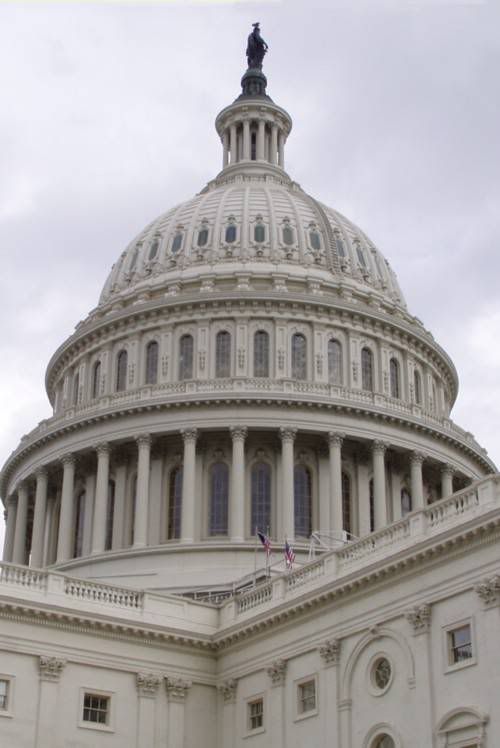Tuesday, March 13, 2007
Ask Congressman Grijalva and Pastor to Revise Holt Reform Bill
While we need to contact all our Congressional representation, Congressmen Grijalva and Pastor are co-sponsors of this bill so it is especially important we contact them and insist on the needed amendments, including banning DREs.Holt's Election Reform Bill HR 811 Urgently Needs Reform
By Voters Unite
March 2, 2007
Ask your Congressmember to amend HR 811.
(Originally published at PDA)
There are many good provisions in the new election reform bill (HR 811 introduced by Congressman Rush Holt D-NJ), called the “Voter Confidence and Increased Accessibility Act of 2007.” For example, it would ban wireless communications to reduce the possibility of some types of hacking; it would prevent Diebold, Sequoia, and other voting machine companies from using secret software on the voting machines; and it would require partial hand counts to check the accuracy of the machines.
However, the primary problem with the bill is that it allows the continued use of Direct Record Electronic (DRE), or “touch screen” voting machines, as long as they print out a copy of the electronic record of your vote for you to approve (called a “voter-verified paper audit trail” or “VVPAT”). But this “band-aid” cannot solve the systemic problems inherent to DREs. Democracy demands that DREs be banned from all American elections.
It has been said of those calling for a “ban DREs” amendment to HR 811 that we intend to “kill” the bill. Nothing could be further from the truth. We do not seek to remove this bill from consideration; we seek to correct a fundamental omission, which we believe presents a grave danger to all future elections.
Why do we consider a ban on DREs an essential requirement? Because DREs constitute a new and subtle form of high tech voter suppression. Consider:
- DREs (often called “touch screens”) cause long lines, forcing many legally registered voters to leave without being able to cast a vote, when too few machines are provided or the machines are delivered late, fail to start up, or break down. When voters make their selections on paper ballots, voting doesn’t depend on the availability of a machine.
- DREs disrupt the electoral process, as they have in the still-contested Jennings/Buchanan U.S. Congressional election in Sarasota, Florida, as well as in many less publicized races across the country. If the voters had voted on paper ballots, there would be no more speculation about the 18,000 missing votes. The ballots would be available for inspection. VVPATs (“paper trails”) would not have solved the problem in Sarasota.
- DREs change voters’ selections from one candidate to the opponent, with no way for the voter to know if the right candidate was ultimately recorded inside the computer’s memory.
- DREs confuse and cause anxiety for voters who aren’t computer-savvy, many of them elderly.
- DREs confuse pollworkers, who often have to call on technicians for help during the election, causing further delays for voters.
- DREs disenfranchise minorities, as shown by the plunge in undervote rates of Native Americans and Hispanics in New Mexico when the state banned DREs and converted to paper ballots counted with optical scan technology.
- DREs make ethnic profiling possible when voters are asked to choose between English and an alternate language, since software in the machines behaves differently based on the language chosen.
- A DRE "ballot" is only an invisible, intangible record in computer memory, secret from the voter, rather than a paper the voter can know exists by seeing or touching it.
- With DREs, it is impossible to determine voter intent in recounts or investigations, because there is no original, observable record of the vote.
- DREs are too complex and too high-tech for ordinary citizens to understand, effectively monitor, or measure for accuracy. They eliminate the electorate from vital aspects of the electoral process.
- A printed copy of the electronic vote record (VVPAT) does not correct any of these problems. What’s more, studies show that most voters do not even look at the VVPAT to make sure it matches their selections on the screen. When they do, it’s difficult to notice errors.
- With DREs, the voting public has no basis for confidence in election outcomes, which causes a lack of trust in our American democracy. This, alone, is a grave threat to the health and security of our nation.
A reform in our election systems is needed NOW, but the new technology proposed by Rush Holt’s HR 811 HAS NOT YET BEEN INVENTED.
The bill, as written, would foster a fresh round of DRE development, rushed to market and certain to continue the technology's historical pattern of disenfranchising voters as well as wasting taxpayer dollars.
Tried and true technology is available now to convert the entire country to paper ballots. New Mexico’s smooth and speedy transition from DREs to optical scan paper ballots proves it.
Generations of Americans have fought long and hard to win the right to vote, and we must always remain vigilant to combat new attempts to disenfranchise voters. Today we are faced with a new, high-tech form of voter suppression – DREs. If HR 811 is to protect the precious right to vote, it must be amended to ban their use.
For links to more information see http://www.votersunite.org/info/2007ElectionReform.asp
Labels: DREs, election integrity, election reform, Grijalva, Holt bill HR811, Pastor, voters unite, voting rights
---------------oOo---------------




